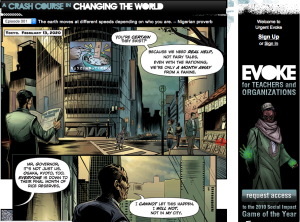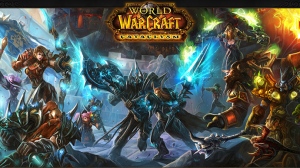“Reality is broken and we need to make it work more like a game.” – Jane McGonigal, Game Designer
Jane McGonigal’s brilliant TED talk is mind blowing when one considers the immense challenges our civilization is facing. The possibilities of utilizing everyone, not just scientists and politicians, to buckle up and join the challenge of solving real world problems should not be looked down upon. If millions of people are putting so much time and energy into playing games, then utilized properly, gamers’ curiosity, persistence, perseverance, and creativity could all contribute to solving tangible and authentic problems.
McGonigal discusses the point of an “epic win” where gamers accomplish something they never thought they could, and have an amazing sense of accomplishment. According to her research, games make us feel good, motivated, inspired to collaborate and cooperate, feel like this is the best version of ourselves, and help us find the motivation and courage to get up and confront obstacles. So no wonder so many people spend so many hours playing games all over the world! But unfortunately, this exciting and optimistic feeling is what education for change is lacking…
Although I have no knowledge or experience with the game World of Warcraft (“WoW”), I think that what the game has accomplished is astonishing. In 2010, WoW had over 12,000,000 subscribers around the world, which, if their total game time was added up, have played about 5.93 million years… That’s incredible!
So what can we learn from these types of games that would allow us to direct all the time and effort to win toward a more realistic, and needed goal? In WoW, players establish trust, work at their level (Zone of proximal development), feel there is something important to be done, have many willing collaborators to achieve their target, and receive constant encouragement (“+1ing” others). These are some of the conditions that can push education forward!
According to McGonigal, there are four “things” that gamers are practicing and getting better at:
- Urgent Optimism (epic win is possible),
- Social Fabric (befriending and collaborating with anyone; trust; values; persistence; bonds, trust, cooperation),
- Blissful Productivity (willingness to work hard no matter what)
- Epic Meaning (awe-inspiring missions- create new knowledge)
McGonigal used the fact that school-aged students spend about the same time at school as they play games to expose viewers to the idea of “parallel track of education” (at 6:50). She cites cognitive scientist research (“10,000 hours of success”) that assumes if anyone spends 10,000 hours at something, they would master it. I believe that if we want to make education more motivating and meaningful to students, we must learn from the gaming world.
There is a lot to say and discuss about the need to transform education, so I will leave this topic for now and get back to it later on. But before I end this post, I would like to include this thought-provoking talk by a current (and fantastic) professor of mine, Dr. Chris Haskell:
Afterthought: I would love to explore the games Jane helped create with the Institute for the Future (“World without Oil“and “Evoke“), and perhaps even start a student group who would be playing the game as a part of their extra curricular activities. It is also interesting to read the data compiled about their game “SuperStruct“.

Wow!


No comments:
Post a Comment